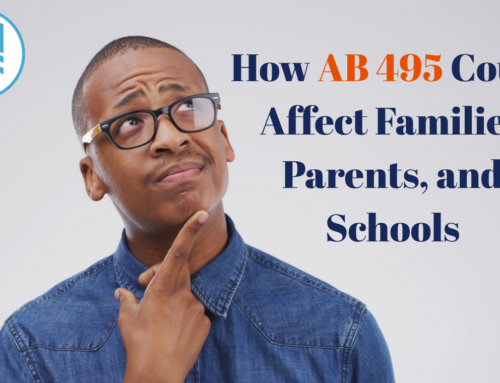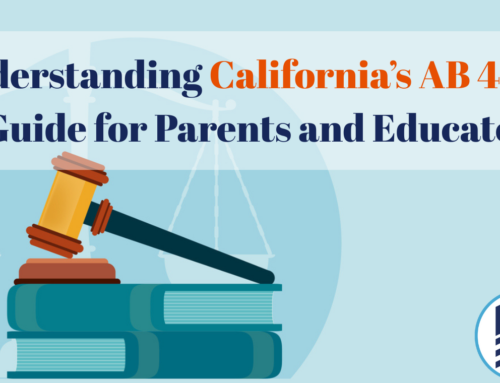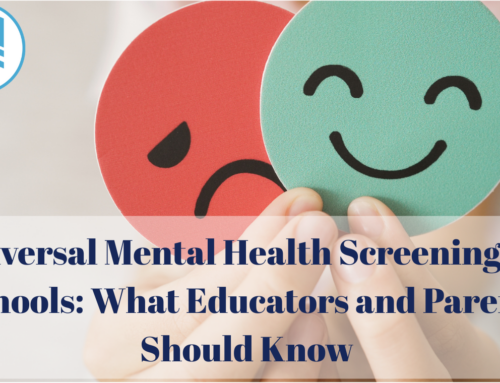
“Learning is the most important thing, no matter how you do it, or where you do it, or who you do it with.”
How your child gets an education is the kind of decision that keeps a parent up at night.
Should they attend the local public school? Maybe homeschooling would be better? Can you afford a private school? What if you mess up? Will your child ever recover from a wrong schooling choice?
“No one cares more about your child’s welfare than you do…” Reading Rockets encourages parents. “Choosing your child’s school may also make you more confident that she will be taught effectively and treated fairly. Choosing your child’s school carefully is an important way you can help your child achieve all that he can be. This is a head and a heart decision. Don’t be afraid to heed your own informed and intuitive wisdom.”
Selecting a school doesn’t have to cause you permanent insomnia. Here’s how to do it right:
What to Consider
What considerations should rank at the top of your school choice checklist? Below is a summary from GreatSchools.org on where to start:
- Evaluate your child’s ability level and the subject matter.
- Understand the ins and outs of how your child learns, including learning style, motivation, and even things like behavioral, mental, and physical challenges.
- Make sure that you know your child’s social needs.
- Don’t forget to consider practical aspects like extracurricular activities that might be important to your kid.
Along with these ideas, decide how involved you want to be in your child’s education. For maximum involvement, an option such as homeschooling is best. Even if you don’t feel comfortable teaching your child at home, parental involvement is a key consideration when deciding what type of education your child will be getting.
Reading Rocket notes that a host of environmental factors can help you decide which school would best fit your child and your family. Do they thrive in a more structured or less structured environment? What about individualized attention? Do they work better on their own or do they require extra aid to understand and complete their work?
Other aspects to consider might be learning style and general talent. Some kids prefer a more social or a discussion-based approach, while other children are more prone to learning on their own, in their own space. A few more points to consider might be:
Needs
- “Does your child need more challenging work?
- Does your child have any special learning needs?
- Does your child need an environment that fosters creativity?
- Does your child need an English language acquisition program?”
Learning style
- “Does your child learn best by seeing how things work?
- Does your child learn best by reading about how something works?
- Does your child learn best by listening?
- Does your child like to learn through physical activity?
- Is your child logical or mathematical?
- Is your child musical or artistic?”
Reading Rockets also suggests considering the location of the school, including whether it’s within walking distance or driving distance. Will you have special transportation needs? These ideas can help you think through your school decision.
Types of Schools
With the recent surge of national interest in school choice, creative educators dream up a new kind of school every day, or so it seems. But six school types consistently rank most popular in the U.S.:
- Public
- Charter
- Magnet
- Language Immersion
- Homeschool
- Private
You might already have two or three “likely candidates” in mind and can automatically discard the rest. But, for the sake of a fully-informed choice, let’s take a quick look at each learning option.
Traditional Public School
Public schools are a convenient choice that you’re probably already familiar with. Perhaps you and your spouse attended public school, or maybe your child has been enrolled in public school before. No matter what your level of familiarity is with the public school option, it may be helpful to examine the pros again. According to BabyCenter, public schooling has some definite benefits on its side:
- Teachers are more qualified. The National Center for Education Statistics released a study indicating that public school teachers tend to be more qualified in education and experience when compared to their independent school counterparts.
- A greater emphasis on core subjects. The same study found that public school students study English, math, social studies, and science more hours per week than private school students typically do.
- Bigger = more activities. Due to their larger size, most public schools can participate in more extracurricular activities such as science fairs or computer clubs.
- Diversity. A public school is more likely to have a widely diverse student base.
Charter School
Charter schools are a unique form of public school. They are publicly funded, allowing students to attend without tuition fees. However, charters operate independently from the local school district.
Honest Pros and Cons notes some positive aspects of charter schools:
- Alternative educational approach – “Charter schools…focus more on certain subjects like math and science. They may use Montessori techniques or other alternative methods for education.”
- Innovative focus – “Charter schools can help children to learn without harsh discipline. Experiential and innovative learning is often seen in charter schools because there is a sort of independence.”
- Incentive to compete – “…charter schools encourage competitions which creates accountability.”
- “Private” feel – “Although charter schools are funded publicly, they are more independent than neighborhood public schools. This makes it more like private schools, minus the fees. They need to hire licensed teachers and administer state-mandated tests. They can even be closed for under-performance.”
- Relational structure – “Many charter schools tend to be smaller schools with smaller class sizes, and have closer-knit communities.”
Magnet School
Similar to the common breed of public schools most people are used to, magnet schools are publicly funded. However, magnet schools have some distinguishing characteristics that differentiate them from your typical neighborhood public school.
According to the Public School Review, three specific features define a magnet school. First, magnet schools offer a specialized curriculum or instruction style, focusing on a very specific area of interest. One magnet school might highlight music, drama, and languages, while another might emphasize science, technology, and math. The second feature of magnet schools is the diverse representation of socioeconomics and race within the student body. Third, magnet school diversity isn’t an accident. The schools are specifically designed to encourage this type of inclusion.
Public School Review goes on to suggest several questions for you to ask when looking at a magnet school. What are your goals? Do you want to:
- “Place your child in a more racially or ethnically diverse student population?
- Place your child in a school where academic progress should surpass what he or she would do at their assigned school?
- Place your child in a school environment with a specific type of curriculum or teaching methodology?”
If you answered, “yes,” then you may want to consider a magnet school!
Language Immersion School
Language immersion schools offer their students some unique benefits, as VeryWellFamily notes:
- The Bilingual Advantage Hypothesis is the idea that studying a second language can make you smarter in many other ways. Language immersion schools take this concept to heart.
- Learning about others can encourage an empathetic spirit. Language immersion schools may help students to learn about other people and cultures and realize that others relate to the world around them in a different way than they do.
- Learning and knowledge promote self-esteem. Having a second language under their belt can help to boost your child’s confidence.
- Some experts suggest that children with certain physical and learning challenges, such as speech and language impairment, do very well in a language immersion school. In fact, they succeed at the same level as their peers without similar challenges.
Homeschool
Homeschooling is a popular choice, with its popularity ever-growing. Study.com notes that homeschooling might be right for your child if:
- Your Child Has Mixed Academic Abilities – “…in a homeschooling situation, parents can personalize the curriculum to match their child’s aptitude in each subject.”
- Your Child Has Special Needs – “In the home classroom, everything from the class schedule to the curriculum materials to the physical setup of the work area can be custom designed to meet the needs of your child.”
- Your Child Prefers Hands-On Activities – “homeschooled children…can enjoy a more varied learning environment…you can enrich your child’s education with field trips and other hands-on learning experiences as often as you’d like. ”
- Your Child Has Social Anxiety – “Homeschooling can be the right educational solution for a child who suffers from severe social anxiety. In a safe family environment, your child can be free to learn without the distraction of unbearable social angst.”
- Your Family Relocates Frequently – “If your family moves around a lot.. your address may change frequently, [but] repeated moves won’t mean adjusting to a new school every few months or years.”
- Your Child’s Other School Choices Are Not Ideal
Traditional Private School
What are some reasons parents choose a private school for their kids?
While there are many motivations for parents to go this route, Our Kids offers a few common reasons why this might be a good choice for your family. For instance, students who attend private schools tend to test well in standardized tests and on college entrance exams. Notably, a high number of private school students go on to attend their school of choice for high education. Part of the success of private schools can be attributed to the small class sizes, another “pro” for parents to consider.
Since private schools prioritize parental involvement, this can have a direct effect on the success of students. With open communication and a community built around the cooperation between parents and administration, private schools typically provide an excellent environment for learning. Parents should also consider the fact that private schools often offer more learning opportunities than what’s legally mandated by the state. Another plus for students!
A Choice Worth Making
Many parents follow the proverbial crowd and happily supply their children with a public school education without a second thought. While there’s nothing necessarily wrong with this approach, a public school education might be a good choice for some students and their families—but not all of them.
When a parent decides to invest in their child’s education by carefully researching and selecting the type of education they want their child to receive, that parent has chosen to be an exceptional parent.
Parents face difficult education choices every day, but it doesn’t have to be the stressor it often is. Educating yourself about your options can be your ticket out of sleepless nights.
Armed with this article’s questions and prompts, you and your child are ready to benefit from the hand-picked education they need!





[…] Finding “the perfect school” is a pretty big deal. […]
[…] magnet schools are designed to draw students from many different backgrounds who are interested in one subject or theme. For instance, one magnet school may focus on the arts, while another specializes in business and […]
[…] Step outside the norm. Empower your students through quality alternative schooling methods (homeschooling, magnet schools, etc.) While the public school system can be a great resource, if you’re worried about the quality of your child’s education, it might be time to take control yourself and hand-pick your kid’s educational experience. […]
[…] input and guidance are crucial pieces to your child’s academic puzzle. From deciding which school they should attend to watching them cross the stage at graduation, your participation will change the outcome in ways […]
[…] Step outside the norm. Empower your students through quality alternative schooling methods (homeschooling, magnet schools, etc.) While the public school system can be a great resource, if you’re worried about the quality of your child’s education, it might be time to take control yourself and hand-pick your kid’s educational experience. […]
[…] the right school for your child is a big decision, with new factors to consider around every corner. Reading Rocket notes that a host of […]
[…] magnet schools are designed to draw students from many different backgrounds who are interested in one subject or theme. For instance, one magnet school may focus on the arts, while another specializes in business and […]